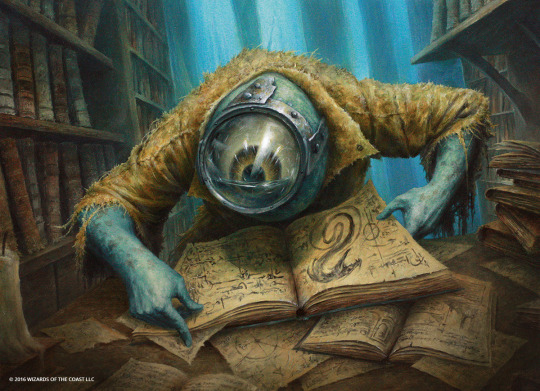#If I want competitive EDH thing I play Duel Commander
Text
I wish there was a CEDH filter on Moxfield because I like powerful commanders sometimes but I don’t want to see those over the top killing strategies, I just want to know what kind of good cards you put in them when you play them normally (like, sliver overlord or shorikai lately)
#EDH#Magic commander#MTG#I don't have anything against CEDH I just don't want to play it#If I want competitive EDH thing I play Duel Commander#It's 1v1 it's cool#I don't care for multiplayer competitive things mostly
3 notes
·
View notes
Note
I normally do decks following a theme and I usually end up overcommitting, running little removal interaction or card advantage. With few oportinities to test the decks and being so hard knowing what to cut or not from the decklist/goldfish (with removal being dead card unless you have opponents and such). I was wondering if you have any advice on the subject.
Ooh boy, testing EDH decks in a vacuum is hard.
In an ideal world, we have buddies with a wide range of personalities (for in game politics), deck types, and power levels to fully field test our decks.
But we don’t. So we need to come up with options. We need to research.

Curiosu Homunculus; by Filip Burburan
(1) Theory
Every EDH deck starts in your head with an idea. Maybe building around a commander, or strategy, or card, and growing from there. We need to here focus on what we’re doing. What is our strategy -
- What it does
- How do we get it going
- Adding redundancies to do the above
We make a deck of 70-80 cards (don’t worry about size yet) and do some testing. So before ever worrying about enemy action, we wanna know what we’re doing. Here is where goldfishing comes in.
If your plan isn’t working against an empty board (pick X number of turns to have), you need to revisit the drawing board. Trust the Scientific Method and repeat repeat repeat. Make sure you can do the thing before moving on.
(2) Building
So your theory is sound. You made a deck, you can get the combo going, and you can do it. Your combo/strategy/commander Can do the Thing by Turn X. It seems promising.
Next we need more rigorous testing. Try the Horde. It’s a self-piloting pile of spells and tokens that can give you some basic interactions.
- How can I respond to swarms (crowd control, board wipes, removal)
- How can I respond to Spells (interruption)
The Horde not attacking early is similar to the defensive nature of EDH - while the game is bigger and has bigger and badder creatures, there’s less actual combat in EDH. Much like Conspiracy, no one want’s to attack into one player, being left vulnerable to counterattack.
With the lessons you learn from this, maybe you find your deck needs a board wipe, or a draw/tutor spell to work better. Maybe the deck needs more or less redundancies.
(3) Clone Yourself

Clone; by Julie Baroh
The most useful thing I’ve done is play 4 decks against each other at the same time. It’s time consuming. Remembering all the triggers and things the deck can do is hard. And playing with each hand open makes it very imperfect.
But playing against a multiplayer field is really useful. It gives you a benchmark for how a deck performs against other decks (granted, decks you have made, so those should be nominally good).
On the other hand, if you can divorce your goals by deck, favoring none over the other, you can do a pretty good approximation of a Multiplayer EDH deck. Picture it: You’re testing your new Voltron deck. You pit it against your Combo/Control deck, your Spellslinger/Good Stuff deck, and a Go-Wide Token deck. Now you’ve got four decks competeing to win. You can learn how your new deck can deal with these problems.
And here we learn
- What doesn’t your deck cover (it’s okay not to do everything - a Mardu Voltron deck can’t be expected to counter spells or draw a ton, but should be able to GY hate) and if you can rectify that
- What strategies/decks are your predator/play (Go Wide decks lose to board control, GY strats lose to GY hate - learn the cycle of life for your deck.)
- How does your deck stack up in terms of power/draw/options to a random deck (more of a barometer, if your deck is seriously lacking in Killing power, add a backup win-con)
(4) Consider the 8x8 Theory by @the8x8theory
In conjuntion with the above, the 8x8 Theory has revolutionized how I make my decks. It’s a simple and elegant deck plan which lets you do multiple things and still leave plenty of rooms for options and pet cards. From an initial iteration of an 8x8 deck you can tweak to fit your playstyle and meta.
They’re one of the inspirations for my blog, and any EDH player should check them out!
So that’s how my decks get build. Granted, all of this stems from the fact I’m used to playing EDH and my Meta - combo heavy, so pack some disruption and counterspells, or plan to go under them, hard and fast.
No thought experiment can replace actual play, be it online, multiplayer or duel, casual or competitive. Have a good time, learn with others. EDH decks are big and singleton - you can play dozens of games and have a million interactions, and not see every card in your deck.
Variance is native to the format, and it can’t be removed, only planned and compensated for.
Have fun out there campers!
266 notes
·
View notes